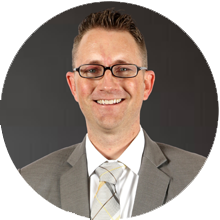Every day the U.S./Mexico border is overwhelmed by persons from other countries seeking asylum in the United States. To prevail on a claim for asylum, one must demonstrate past persecution on account of their race, religion, national origin, membership in particular social groups, or their political opinion. If past persecution is proven, one is presumed to have a well-founded fear of future persecution. If past persecution is not proven, one still may prevail if one can prove a well-founded fear of future persecution on account of one of the previously enumerated grounds.
On October 28, 2020, the Biden Administration launched the CBP One mobile application to assist asylum seekers. The idea behind its implementation is to provide a safe, orderly, and humane process for noncitizens to access ports of entry rather than attempting to enter the United States illegally. Through CPB One, asylum seekers could potentially schedule an appointment with Customs and Border Protection (CBP) to apply for asylum. CBP One was quickly inundated with demandand many became discouraged by its inefficiency and reverted to going directly to the port to request asylum. In an attempt to address the issues—app not working/crashing/no appointments— on May 10, 2023, CBP updated the application by increasing the number of appointments available to approximately 1,000 each day, providing more time to complete the appointment request, and prioritizes noncitizens who have waited the longest.
With the change to CBP One it now appears to be working as intended. Many asylum seekers have been able to get processed into the United States to pursue their asylum application in removal (deportation) proceedings. Yes, people are allowed into the United States and placed into the court system, where the government tries to remove them from the United States. In response to the government’s removal efforts, one may pursue an application for asylum as a form of relief.
The nature of removal proceedings vary for an asylum seeker and depends upon whether CBP releases the applicant to live with a sponsor in the United States or whether the applicant remains detained.Those who are released go to live with their sponsor will eventually be scheduled to go to immigration court in the jurisdiction where they live. Often times this process can take several years before the asylum seeker is scheduled for their final hearing.
For asylum seekers who are detained, the process is significantly different. While in ICE custody an asylum seeker will be interviewed by an asylum officer. There are two distinct types of interviews a person may be subjected to: a credible fear interview or a reasonable fear interview. First time entrants to the U.S. will be given a credible fear interview (requires proof of a significant possibility of eligiblity for asylum).whereas persons who have previously been deported from the U.S. and have now returned will go through a reasonable fear interview (requires proof of a reasonable possibility of torture or persecution). . Reasonable fear is more difficult to prove than credible fear and only may result in a grant of withholding of removal and not asylum which leads to permanent residency.Following the interview, the asylum officer determines whether a “significant possibility” exists that the person will be able to demonstrate eligibility for asylum. If the officer makes a positive finding that there is a credible or reasonable fear, one is permitted to pursue their application for asylum or withholding of removal, respectively. Unless granted bond by the immigration judge, the individual applicant will remain in custody for several months before the immigration judge makes a final decision on their application.
If the asylum officer makes a negative finding, the applicant may still try to convince an immigration judge otherwise. If a negative finding is sustained by the court, the unsuccessful applicant will be processed for return to their country of citizenship.
If someone you know is going through the credible/reasonable fear interview process or is applying for asylum, contact one of our offices for a consultation with an attorney who specializes in the asylum process. We offer telephonic, video, and in-person consultations at our offices in Orange, Riverside, San Diego, Fresno, Sacramento, and San Francisco, California; Phoenix, Arizona; Salt Lake City and Orem, Utah; and Boise, Idaho.
ABOUT THE AUTHOR(S)
DEREK J. POULSEN – MANAGING ATTORNEY, SAN DIEGO

Derek Poulsen is the managing attorney of Wilner & O’Reilly, APLC San Diego Office Location. He focuses his practice 100% on Immigration Law. He graduated from Utah State University where he earned his Bachelor of Arts degree in Sociology with a Minor in Spanish. He earned his Juris Doctor degree from Creighton University School of Law. During law school, he was selected to be on Creighton’s National Trial Team and earned the Honorable Lyle E. Strom Trial Advocacy Award. His previous practice included criminal defense, where he gained valuable knowledge of the negative immigration consequences that differing criminal activity has on an individual’s ability to remain in the United States.


Comments are closed.